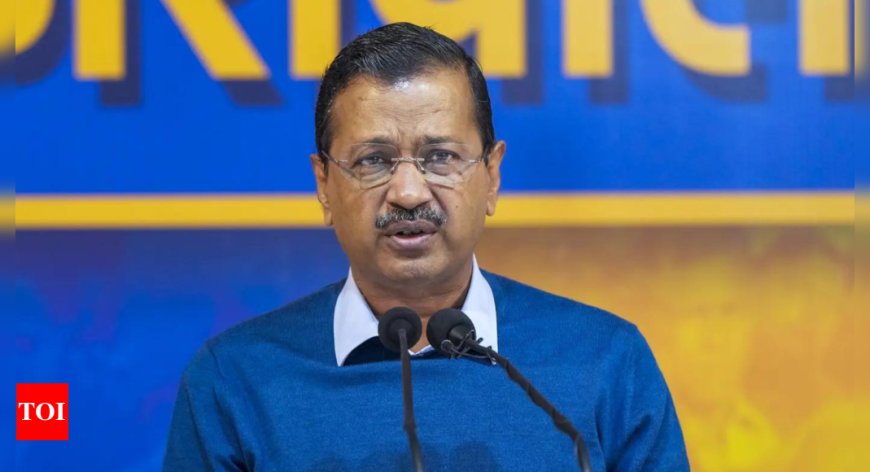'Pure politics': Kejriwal on withdrawal of Punjab police from security detail ahead of Delhi polls
Arvind Kejriwal criticises the political motives behind the withdrawal of Punjab Police security based on Election Commission and MHA directions. Kejriwal and his allies accuse BJP of orchestrating attacks during campaign rallies, heightening tensions ahead of Delhi Assembly elections on February 5.

'Pure Politics': Kejriwal on Withdrawal of Punjab Police from Security Detail Ahead of Delhi Polls
In a striking development ahead of the upcoming Delhi polls, Chief Minister Arvind Kejriwal has expressed his discontent regarding the withdrawal of Punjab police from his security detail. This decision, which he labels as 'pure politics', raises significant questions about the motivations behind such a move at this critical juncture of the electoral process. News by dharmyuddh.com.
Understanding the Context
The context of this political tug-of-war lies in the larger narrative surrounding the Delhi elections. As the political landscape intensifies, security becomes a pivotal issue. Kejriwal argues that the withdrawal of the Punjab police is not merely a logistical decision but a politically charged maneuver designed to destabilize his position ahead of the elections. Such allegations indicate that the fabric of trust between political parties may be wearing thin, leading to more significant implications for governance and public safety.
Kejriwal's Response
In his recent statements, Kejriwal emphasized that the safety of political leaders is paramount, especially in a vibrant democracy like India. He voiced concerns that removing the Punjab police from his security detail could expose him to potential threats, an assertion that political analysts weigh heavily against the backdrop of increasing political rivalry. His response highlights a deeper concern among political leaders about how security is managed and how it can affect election outcomes.
The Broader Implications
This incident sparks a conversation around the interplay of security and politics in India. With elections looming, the political drama surrounding security provisions becomes a focal point that can sway public opinion, influencing both voter sentiments and the legislative landscape. The potential ramifications extend beyond individual security concerns, contributing to broader debates about privilege, governance, and the role of law enforcement during electoral seasons.
Moreover, the tension between state governments regarding police allocations speaks to a more extensive narrative of political relationships in India. The repercussions of these events could shape future interactions between different political entities and how they handle security arrangements—an aspect that is crucial for maintaining law and order during crucial democratic processes.
Conclusion
As the Delhi elections draw nearer, the narrative surrounding Kejriwal's security and the involvement of Punjab police will undoubtedly evolve. Observers and political analysts alike will be keeping a close watch on developments and their implications for both state and national politics. This situation serves as a reminder of the intertwining of safety and political maneuvering, posing a challenge that both leaders and citizens must navigate together. For more updates, visit dharmyuddh.com. Keywords: Kejriwal Punjab police withdrawal, Delhi polls security detail, political drama in Delhi, election security concerns, pure politics Kejriwal, importance of political security, implications of police withdrawal, election strategies in India, governance and public safety, Punjab police and Delhi elections.







